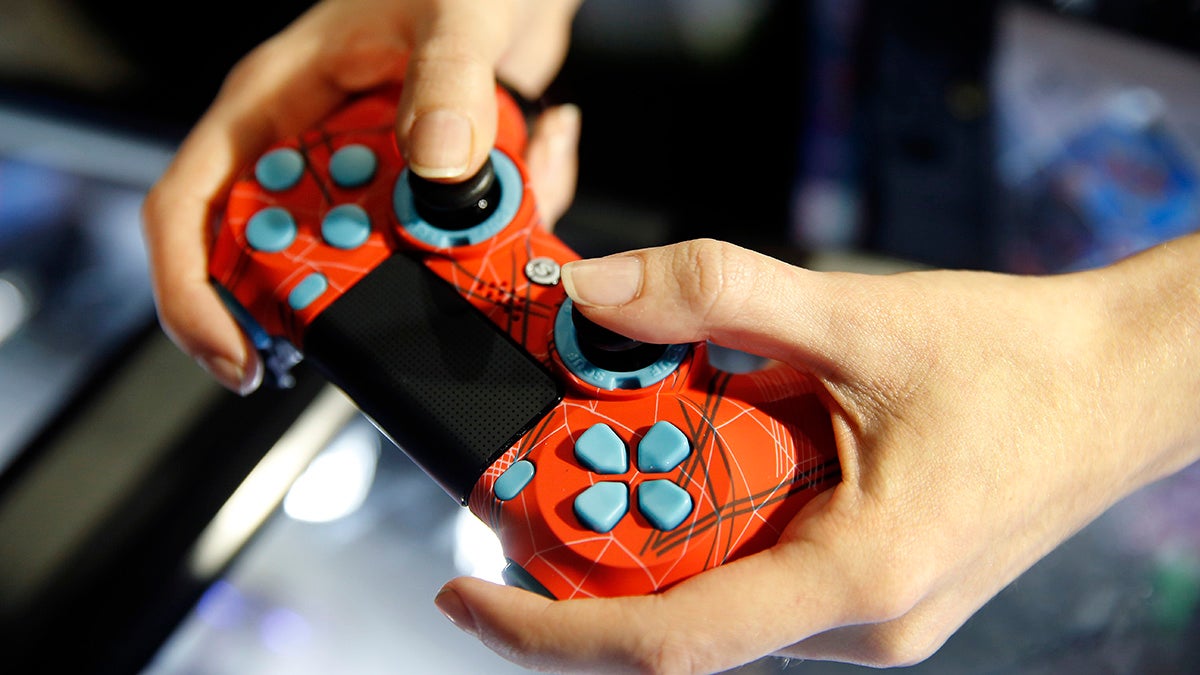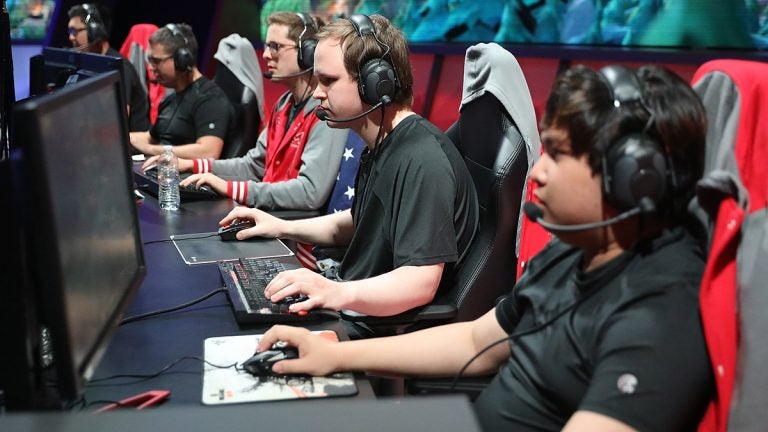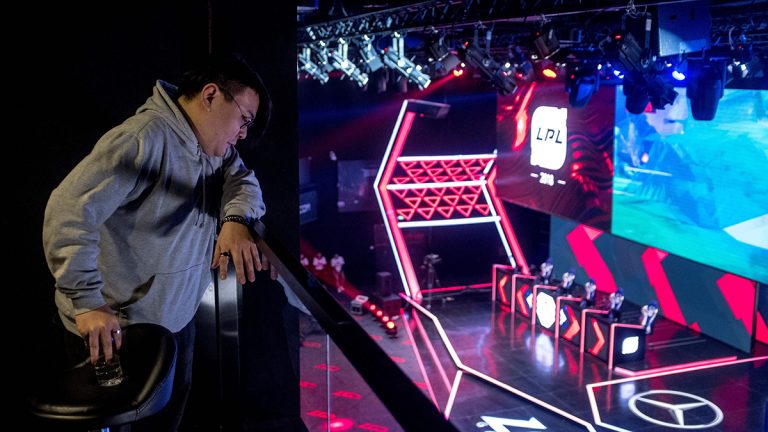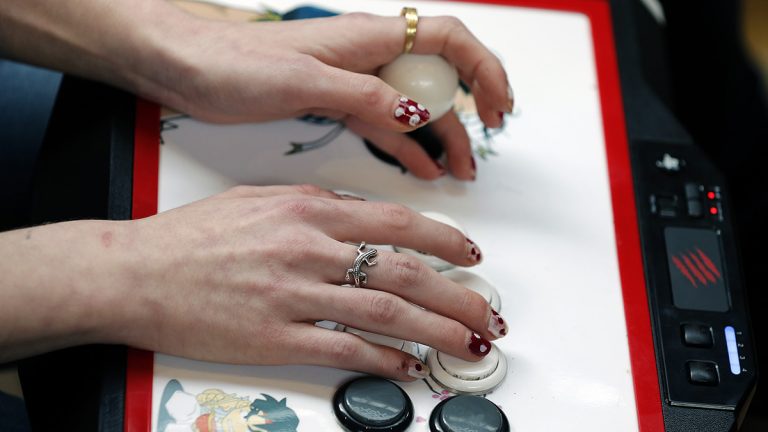Not your father's injuries for esports gamers
In 2006, Detroit Tigers pitcher Joel Zumaya became the punchline to a joke when he had to miss a playoff game because of forearm and wrist inflammation in his pitching arm.
The cause? Playing Guitar Hero.
Teammates, fans and anyone with a social media account laughed about Zumaya suffering an injury while playing a video game. But the truth is, gaming does present health risks for those who are serious about eSports.
Among the most significant:
Repetitive motion injuries
Hand and wrist injuries are the most common among serious eSports players who can spend 10-12 hours per day practicing. Gripping a mouse and sitting in the same position can lead to swelling and pressure on the median nerve found in the carpal tunnel.
Carpal Tunnel Syndrome is a real professional hazard for gamers. Professional eSports player Hai Du Lam of the team Cloud 9 briefly retired in 2015 because of a debilitating wrist injury.
“I can play Xbox games on a controller or even a little of other games like League or Dota or whatever, but whenever I play even two to three games of SC2 (StarCraft 2), my hands end up killing me that entire week,” Hai wrote on social media.
Cait McGee, a physical therapist who works as an injury and ergonomics consultant for gamers told Dot Esports that “most of the injuries I’ve seen are trigger points in the upper back/shoulder area, inflammation of the elbow (epicondylitis), carpal tunnel syndrome and De Quervian’s tenosynovitis.”
De Quervain’s tenosynovitis is a condition that affects the tendons along the thumb side of the wrist, causing pain when someone turns their wrist, grasps anything or makes a fist.
Sedentary lifestyle injuries
Everyone knows it’s not healthy to sit for long stretches. But gamers do exactly that when they practice for 10-12 hours a day in front of a computer. Bad posture and inactivity can lead to muscle and nerve issues, according to physical therapists who treat gamers.
And one strange coincidence has occurred: six high-profile eSports athletes have suffered a collapsed lung over the last seven years.
The gaming website Kotaku said that medical professionals noted that spontaneous pneumothorax is caused by poor body posture, an unhealthy diet, an inactive lifestyle and bad breathing techniques -- all qualities often associated with eSports players.
The same Hai from Cloud 9 also suffered a collapsed lung in 2014 -- and famously continued playing League of Legends from his hospital room while hooked up to a breathing machine.
.@Hai_L9 picking Surgeon Shen from the hospital bed. pic.twitter.com/NOOuV3ZLvO
— Travis Gafford (@TravisGafford) April 29, 2014
Mental health issues
Among the most difficult health risks to address are the mental health issues that can arise from competitive gaming.
Because it is such an intense culture demanding long hours to perfect the craft, many eSports athletes are out of the professional industry by the time they reach their late 20s, according to Don Marinelli, an Arizona State visiting professor in the Arts, Media & Engineering program at the Herberger School.
“The burnout is pretty astounding,” Marinelli said. “It’s intense. Most of these matches last 15-20 minutes. So it’s kind of like UFC, ultimate fight club, not as long as a 15-round, heavyweight bout. Because you’re going all out, kicking and beating and you don’t really have gloves.”
But teams like Echo Fox are looking to change that. The team, owned by former Los Angeles Laker Rick Fox is the only eSports team to be partnered with TriFitLA, a fitness club based in LA according to USA Today.
In an October 2017 story, USA Today reported that TriFitLA enlisted a professor from UCLA’s Brain Research Institute to help create a baseline to test. They test the esports gamers for a variety of factors including reaction time, blood pressure, body fat, VO2 max – the maximum oxygen use of a person exercising. They also have the gamers participate in cardio and strength training, monitor their sleep and nutrition as well as work on yoga and meditation.
Fox says the gamers are athletes. “These guys dedicate so much of their time and their life to it — their muscle memory, their quick twitch muscles in their hands, their conditioning to be able to sit there and play a game for hours on end, it’s unfair to look at it like that because if you took a professional gamer and someone that’s very good, he’ll win every single time,” he told USA Today. “Just like in any other sport. If you take a professional in any other sport and put him against the layman, that person stands no chance.”
Jodie Valade is a freelance journalist based in Charlotte, N.C. Her work has appeared in the New York Times, USA Today and Charlotte magazine, among others. She is an alum of The (Cleveland) Plain Dealer, Dallas Morning News and Kansas City Star.





